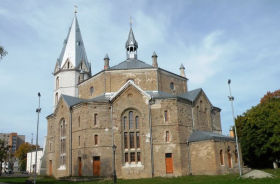Culture, Estonia, Financial Services, Legislation, Real Estate
International Internet Magazine. Baltic States news & analytics
Saturday, 20.04.2024, 10:14
Government to allocate EUR 378,000 for buying St. Alexander's Church of Narva
 Print version
Print version |
|---|
The government is to discuss on Thursday allocating 377,372 euros to the Ministry of the Interior and the Ministry of Culture to cover the costs connected with buying the church and its assets, spokespeople for the government said. In addition, the government is to allocate 15,000 euros to the Ministry of Culture for an expertise of the church's investments.
Interior Minister Hanno Pevkur said last week that creditors of St. Alexander's Church of Narva agreed to reduce the price of the church to 375,000 euros from the initial price of 500,000 euros. He added that the agreement with the Estonian Evangelical Lutheran Church (EELK) that the church is to pay half of the total price still stands.
A court declared St. Alexander's of Narva bankrupt in April 2015 because of the small congregation's inability to meet the financial obligations taken in connection with the reconstruction of the church building. The bankruptcy petition was filed by the construction company AS Eviko and the congregation's debt at the time it was declared bankrupt allegedly amounted to more than 2.1 million euros.
At the end of March this year the general meeting of creditors decided to put the building of St. Alexander's of Narva up for auction with a starting price of 500,000 euros.
Archbishop of EELK Urmas Viilma announced on April 25 a fundraising campaign to support the bankrupt congregation and salvage its assets.
The government has spent more than 2 million euros to help restore the Lutheran church in the border city now inhabited mostly by Russian-speakers, one million euros of which was provided via a regional competitiveness program of the Enterprise Estonia foundation.








 «The Baltic Course» Is Sold and Stays in Business!
«The Baltic Course» Is Sold and Stays in Business!

